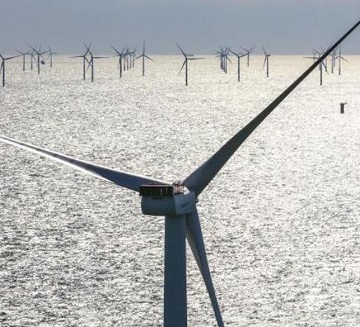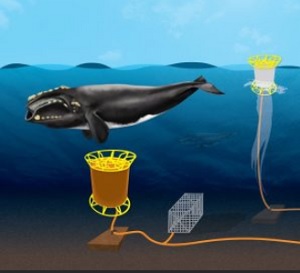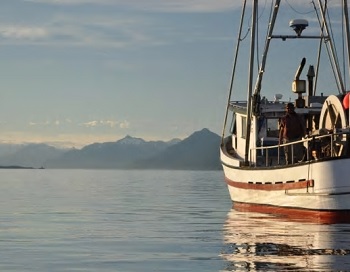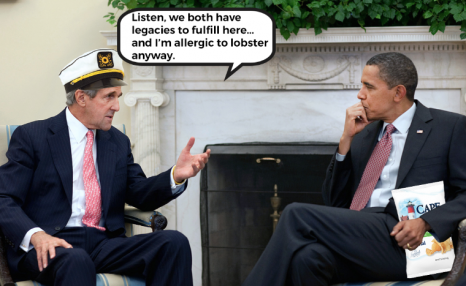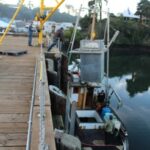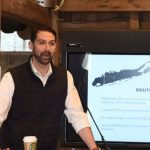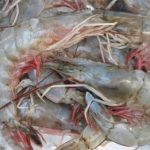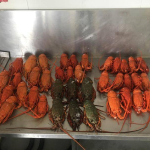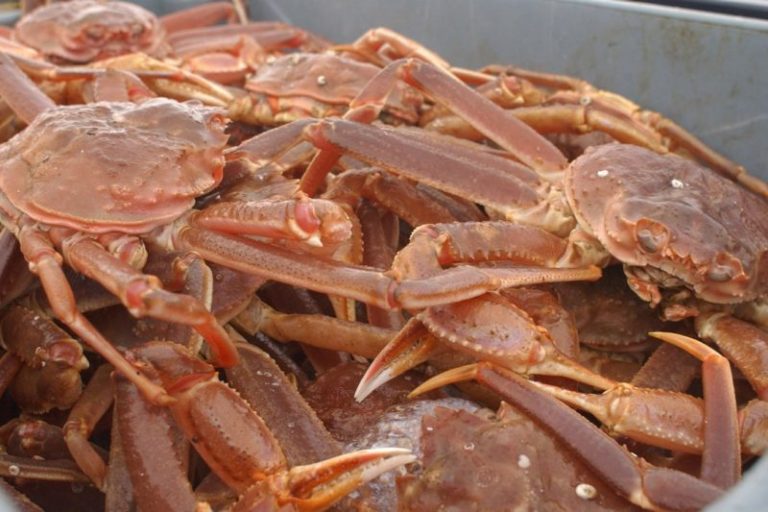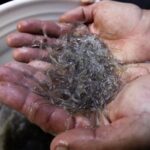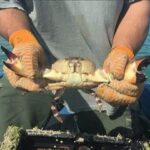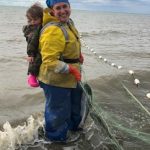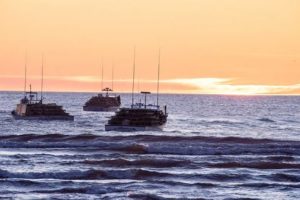Tag Archives: environmental groups
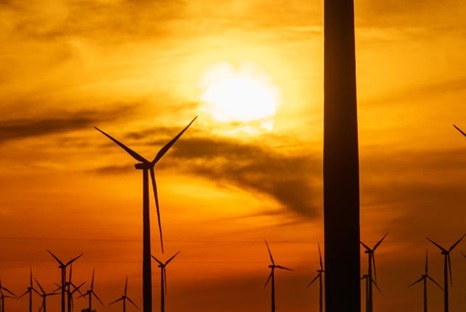
Donald Trump Pledges to Halt Big Wind Subsidies
Donald Trump’s election victory is quickly taking the wind out of the Biden administration’s ambitious renewables initiatives. President-elect Trump promised to end federal subsidies for offshore wind projects on his first day in office. As with many of his campaign pledges, Americans wait to see whether he will deliver. However, the market did not wait to see. Stock prices of offshore wind developers and turbine makers moved sharply downward following election day as investors query whether windmill projects are economically viable without the hefty federal subsidies Trump has promised to terminate. Environmental groups and fishermen have also raised concerns about the potential ecological trade-offs of this plastic-based technology and worries about ecotoxins created in the manufacturing of solar panels and EVs have caused consumers to pause. more, >>CLICK TO READ<< 10:22
New England groups warn against ‘factory’ fish farming in federal waters
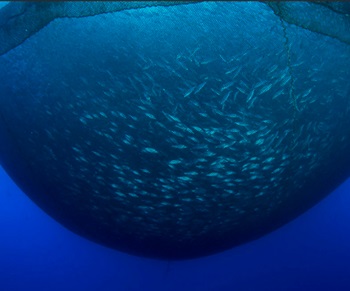 New England fishermen and environmental groups are working to prevent the growth of industrial-size fish farms in U.S. open waters. They said federal legislation known as the “AQUAA Act” would permit so-called “floating feedlots” similar to land-based dairy and poultry farms, known to use heavy amounts of pesticides and antibiotics. James Mitchell, legislative director for the advocacy group Don’t Cage Our Oceans, said there is no way to contain the chemicals or tons of untreated fish waste created. Photos, more, >>CLICK TO READ<< 10:55
New England fishermen and environmental groups are working to prevent the growth of industrial-size fish farms in U.S. open waters. They said federal legislation known as the “AQUAA Act” would permit so-called “floating feedlots” similar to land-based dairy and poultry farms, known to use heavy amounts of pesticides and antibiotics. James Mitchell, legislative director for the advocacy group Don’t Cage Our Oceans, said there is no way to contain the chemicals or tons of untreated fish waste created. Photos, more, >>CLICK TO READ<< 10:55
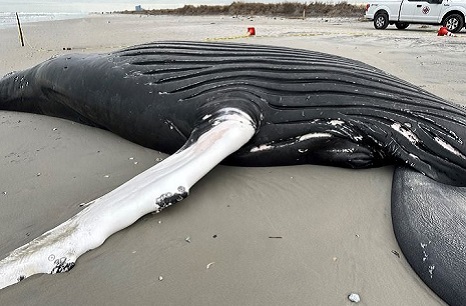
Green Groups Turn a Blind Eye to Mysterious Increase in Whale Deaths
Several environmentalist groups campaign against offshore oil and gas projects because of their ecological impacts, but those same groups appear to apply less scrutiny to the potential impacts of offshore wind developments. The Sierra Club, the League of Conservation Voters (LCV) and Greenpeace have all advocated for East Coast offshore wind projects amid the increase in whale deaths after slamming offshore oil and gas projects for their environmental impacts. The National Oceanic and Atmospheric Administration (NOAA) has declared “unusual mortality events” for humpback and North Atlantic right whales since 2016 and 2017, respectively, a timeline which generally coincides with the start of offshore wind development off of the East Coast in 2016, according to NOAA’s website. >>click to read<< 12:09
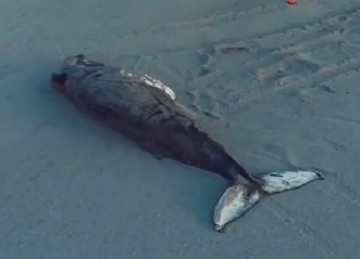
Panel of Democrats, environmental activists blame climate change for whale deaths
The gathering, held in an oceanfront conference room as a half-dozen dolphins frolicked in the ocean behind them, also strongly criticized a bill in the House of Representatives containing numerous incentives for oil and gas companies, and which eliminates several environmental protections currently in effect. It also was a retort to opponents of offshore wind development, who claim that preparation for wind farms off New Jersey and New York are killing whales along the U.S. East Coast. Numerous federal and state agencies say there is no evidence that the deaths are related to offshore wind survey work. At Monday’s event, Pallone said, “The science has not linked the whale deaths to offshore wind activities. Climate change is the biggest threat to marine mammals.” >click to read< 07:48
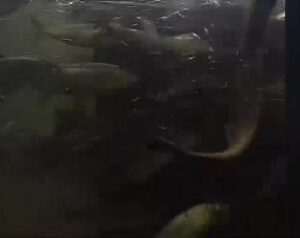
Environmental groups withdraw lawsuit over last Maine salmon
A coalition of environmental groups said Monday it is withdrawing a lawsuit against a renewable energy giant that it has accused of jeopardizing the last remaining wild Atlantic salmon in the U.S. The groups sued Brookfield Renewable, claiming the company kills salmon on the Kennebec River with its dams. Atlantic salmon only return to a handful of U.S. rivers, all in Maine, and they are protected under the Endangered Species Act. The conservationists were dealt a setback last month when the federal government ruled the salmon can coexist with hydroelectric dams on the Kennebec, as long as upgrades are eventually made to allow salmon to pass through the dams more easily. >click to read< 12:15
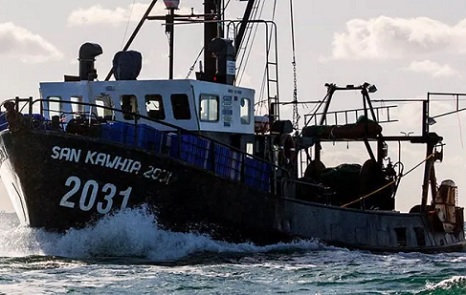
Cawthron boss told he should have expressed himself better
Cawthron Institute chief executive Volker Kuntzsch was expressing his personal opinion when he told an industry symposium that New Zealand had no future without fishing, the institute’s chair says. “I don’t think he’s expressed them in the way that he should have expressed them,” says Meg Matthews. “I think he was challenging the status quo. I think he was hoping to shift mindsets.” It comes amid concerns from academic leaders and environmental groups that Kuntzsch has undermined the independence and scientific credibility of the institute, with his claims about the sustainability of the seafood industry, and his criticism of the carbon emissions of farming and plant-based protein. >click to read< 19:24
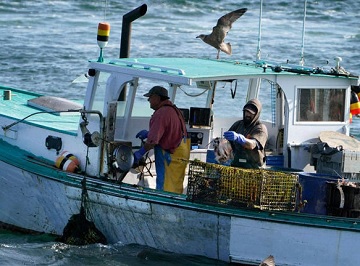
Green groups targeting blue-collar lobstermen are largely funded by dark money
Environmental groups that have led litigation targeting the lobster fishing industry have been heavily funded by various liberal dark money groups that don’t disclose their individual donors, a Fox News Digital review of tax filings found. For example, the Center For Biological Diversity has received millions of dollars from left-wing dark money groups including the Rockefeller Family Fund, the Patagonia Fund and Pew Charitable Trusts. The center has been the recipient of grants worth nearly $8 million from the Sandler Foundation, $1 million from the Wilburforce Foundation, $850,000 from Environment Now and another $815,000 from the Frankel Family Foundation, according to Influence Watch. Video, >click to read< 07:42
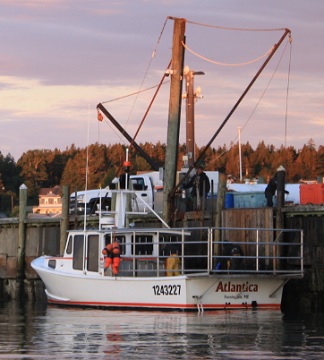
Maine wants to transform how the US manages the lobster fishery.
Patrick Keliher, Maine’s Department of Marine Resources commissioner, has argued that the fishery needs more “tools in the toolbox.” Now, with the most time he’s had in recent memory to sit down and craft new measures, he is hoping that the dawn of “dynamic management” in Maine is here. What is dynamic management? In theory, it’s a simple strategy to keep fishermen fishing, while also making way for whales. The Gulf of Maine would be monitored, with listening devices in the water and planes in the sky, for right whales. If signs of right whales are detected, fishermen would have to clear their traps out of the area. Dynamic management has been pitched by Maine before, and a version of it is being used in parts of the Canadian snow crab fishery. >click to read< 14:35
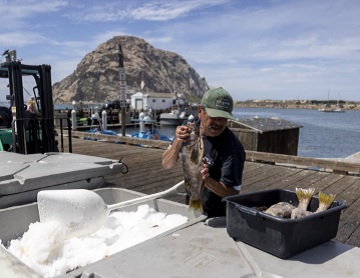
California Offshore Wind Projects Face Hurdles as Pressure Groups, Industry Interests Weigh In
As the Biden administration plans for the country’s first West Coast offshore wind turbines, interests ranging from commercial fishing fleets to powerful environmental groups are complicating the road ahead for the California projects. Some fishermen are worried about losing access to swaths of rich fishing grounds, where they would have to stop towing nets that could get caught on underwater cables. Lori Steele, executive director of the West Coast Seafood Processors Association, said offshore wind power projects threaten an industry that also must deal with depleted fish stocks and soaring coastal real-estate prices. “We’re struggling to make sure that people understand that, just because you can’t see it, that doesn’t mean it’s not having an impact,” she said. There is early discussion about creating fishing compensation funds, similar to ones created by East Coast projects for financial losses, “but the industry doesn’t want to be bought out,” she said. >click to read< 08:08

Fishery interests urge judge to rule in lobster lawsuit
Parties in a lobster industry lawsuit filed against federal regulators are urging a judge to make a decision in the case because its outcome affects a parallel case that the parties have to act on. The federal judge considering this decision was the same who ruled last month that new regulations to protect endangered right whales do not go far enough and violate both the Endangered Species Act and Marine Mammal Protection Act. In that case, U.S. District Judge James Boasberg asked the parties to propose remedies. The lobster association’s case takes aim at newly enacted and proposed federal regulations to protect the whales, which the association says are invalid because they are based on flawed assumptions and calculations. The parties need to know the court’s opinion so they can develop proposed remedies that Boasberg ordered in the parallel lawsuit brought by conservation groups. >click to read< 17:01

Maine lobster industry fights lawsuit that aims to shut down fishery
While Maine’s lobster industry has been fighting an offensive legal battle against impending rules to protect endangered North Atlantic right whales, it also is playing defense in a case brought by environmentalists that seeks to shut down the lobster fishery entirely. Lobster industry groups are intervening in a case brought in Washington, D.C.’s U.S. District Court by the Center for Biological Diversity and other plaintiffs that argues the new federal restrictions aren’t adequate, and that the fishery’s continued operation poses an existential threat to the whales. >click to read< 19:15
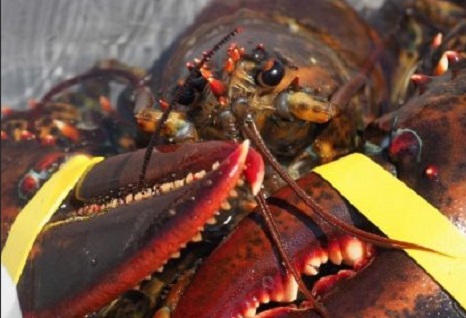
Maine’s lobster industry is in a fight for its survival
In October, a U.S. District Court judge in Bangor had ruled that there was reason to question the federal government’s decision to close this prime lobstering area for four months this winter. When an appeals court overturned this decision in November, lobstermen who had already set traps in this area were forced to dangerously hurry and take them up, creating economic hardship for those who invested in gear, rigged up and were already fishing in these productive waters. For Maine’s lobster industry, this is another frustrating example of one step forward, two steps back. This latest court ruling, however, is just the tip of the iceberg that threatens to sink the fishery. >click to read< 09:57

Richard “Max” Strahan attempted to intervene in right whale case with court injunction
An animal rights activist made a late attempt to try and stop the industry from being allowed to use vertical buoy ropes. Richard “Max” Strahan tried to intervene at the beginning of the month in the federal right whale court case that holds the future of the lobster industry in its hands, but the activist’s attempt was rejected by a judge less than a week later. Strahan filed his motion on May 8 and claimed that the only way the industry would stop using the ropes is by a court-ordered injunction. >click to read< 16:03

MPA Fishing Ban: Another Industry Sell-Out,,, For what? Big Wind, or Conservation?!!
The NFFO has hit back at the Marine Management Organisation’s announced intention to outlaw towed gears in the Dogger Bank SAC and the majority of three other offshore MPAs, describing the move as a ‘further sell-out of fishing’. Describing the announcement as a shocking development, ‘Not even lightweight seine nets are to be permitted,,, The proposals amount to a further sell-out of fishing. It augers ominously for other areas and for fishing communities in our increasingly crowded seas.’ Many will now be asking what has changed. They will also be asking how the government can permit the development of four of the largest wind farms in the world on the same site but take such a sledgehammer to fishing. >click to read< 14:47

Bottom trawling ban for key UK fishing sites
The Marine Management Organisation says it plans to safeguard fishing areas in Dogger Bank and South Dorset by completely banning bottom trawling. The sites are already designated as protected areas,,, Greenpeace recently dropped concrete blocks on to Dogger Bank. The MMO is consulting on proposed by-laws prohibiting bottom-towed gear on the sites. The consultation runs to 28 March 2021.,,, The NFFO described the proposals as having delivered “a sledgehammer to fishing”. “This punishing reversal comes on the back of the government’s failure to deliver on fishing in the Brexit negotiations, and damaging delays in the export of fish and shellfish. >click to read< 13:55
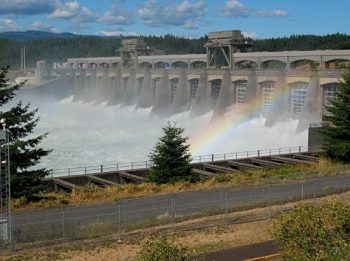
Hydroelectric dams and fish are possible if we’re willing to talk it out
We are now almost 30 years into federal court battles over the management of the Columbia and Snake rivers, both of national concern. Federal judges are making decisions over the “right” management of the river systems. None of them is a dam operator. This is probably the most complex natural resource issue in the Western U.S., if not the entire country. Environmental groups have teamed up to tie it all up repeatedly in the slow federal court system to force a decision that moves only in their direction. They don’t care about the rest of us — the folks who love the working river system FDR started and we use today in so many ways. by Jeff Sayre >click to read< 10:26

9 U.S. environmental groups seeking Canadian snow crab import ban, stronger right whale protections
“We do believe that, at this point, at least Canadian snow crab needs to be banned from the United States,” said Sarah Uhlemann, program director of the Seattle-based Center for Biological Diversity. Uhlemann was one of nine conservation groups who signed a letter sent Tuesday to the National Oceanographic and Atmospheric Administration (NOAA) urging it to “press the Canadian government to immediately strengthen right whale protections, in order to avoid an import ban and to help save the species from extinction.” >click to read< 07:35
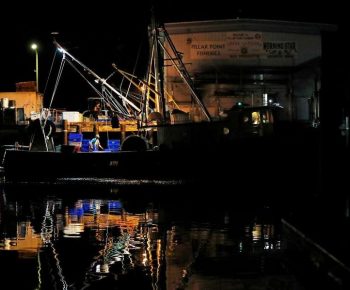
13 years ago, the Nature Conservancy desperately wanted to protect groundfish. Now it wants you to eat them
In 2006, the crash of the groundfish population — bottom-dwelling fish like petrale sole, chilipepper rockfish and sand dabs that used to be common on Bay Area tables — led the Nature Conservancy to buy up 13 fishing permits and some California fishermen’s vessels. The state worked with a handful of the state’s remaining groundfish trawlers to change how they fish and protect vulnerable habitat. Now that groundfish populations have rebounded, the Nature Conservancy wants the public to know they’re OK to eat again. >click to read< (if you don’t get propaganda sick) 10:27

Lobstermen threatened with the extinction of their way of life
The word “extinction” has been thrown around a lot lately by environmental groups,,, Large, well-funded, out-of-state environmental groups would have you believe that these whales are going extinct and that Maine fishing gear entanglement is a major reason why. These groups have proposed things like ropeless fishing and refuse to believe that ideas like this are not practical in Maine. Can you imagine how a fisherman could set his 20- to 30-trap trawl into water 300 to 400 feet deep, not knowing where any of his competitors’ trawls might have been set days before? >click to read< 11:37

The best available science? – Backing lobstermen, Rep. Golden seeks to withhold funds for right whale protections
“The federal government is asking Maine lobstermen to make huge sacrifices without clear evidence that those sacrifices will have any positive impact on right whales,” Golden wrote in a statement Wednesday. “I’ve joined lobstermen to voice our concerns and now it’s time for action. Golden said it is important to help the right whale, but he joined the Maine lobster industry and Maine’s fishing managers in a common refrain: the federal government has no conclusive proof that right whales are getting hurt or killed by entanglement in Maine lobster gear. >click to read> 09:46
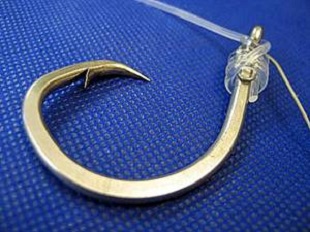
Leatherback sea turtles likely to go extinct under Trump administration policy, lawsuit argues
Leatherback sea turtles are likely to be “effectively extinct within 20 years” if two new federal permits for fishing off the coast of California go into effect, environmental groups claim in a new lawsuit. In April, the Trump administration granted new two-year “exempted fishing permits” to two California-based vessels in what are currently protected waters.,,, National Marine Fisheries Service,,, the federal agency said the permits “are not likely to jeopardize the continued existence of any listed species or result in the destruction or adverse modification of critical habitat.” The longline fishing will have to halt immediately if “one mortality of a leatherback sea turtle is observed.>click to read<14:03

Big Green – The Handmaiden Of Big Oil
It is part of the green fairy tale that skepticism only exists because the oil companies are funding it. So I did some digging and the reality turns out to be just the opposite.,,, The central vehicle for moving these green billion dollars goes by a perfectly descriptive name — the Oil and Gas Climate Initiative or OGCI., started in 2014, shortly after the famous Chesapeake Energy scandal. Chesapeake’s CEO was caught giving the Sierra Club millions,,,With a billion bucks in funding, it may well be the biggest outfit in Big Green (not counting the green governments).However, I also found that EDF is actively engaged with corporations, via its EDF+Business arm. >click to read<19:15
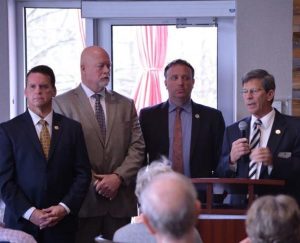
Maryland District 36 Delegation raises concerns over ‘War on the Shore’
When the four members of the District 36 delegation to the General Assembly got together for an annual breakfast sponsored by the Kent County Chamber of Commerce, discussions about this year’s recently completed legislative session led the lawmakers to talk about what Del. Jay Jacobs dubbed a “War on the Shore” and its leading industries, agriculture and seafood.,,, Rob Newberry, chairman of the Delmarva Fisheries Association, said from the audience that environmental groups clobbered the seafood industry this year.,, click to read<10:12

Seamounts and canyons: It seems fishermen can’t win
In general, sad to say, commercial fishermen are not well-regarded and struggle for respect. They don’t have powerful lobbyists or image makers and are so independent and competitive by nature that they don’t work well together. As such they are easily defeated politically when opposed by environmental groups with plenty of capital and connections. The headlong rush to deploy wind turbines offshore from here down to Delaware is now gathering momentum. From the deck of a fishing vessel that prospect is akin to a Plains Indian catching a first glimpse of smoke on the horizon, rising from an Iron Horse. <click to read>
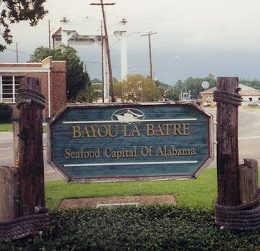
Bayou La Batre – Coastal Alabama Citizens Rise Up And Defeat Job-Killing Eco-Tourism Ordinance
Fearing the loss of both their livelihood and their way of life, residents of Bayou La Batre, Alabama, banded together earlier this summer and scuttled a city ordinance crafted to promote eco-tourism. Located along the Gulf Coast, a few miles southwest of Mobile, Bayou La Batre is a fishing village with a vibrant seafood-processing industry. The city of 2,500 souls has survived Hurricane Katrina and other unpleasant visitors from the tropics. But a 200-page zoning proposal developed by the city’s planning commission with assistance from the Southeast Alabama Regional Planning Commission (SARPC) and environmental groups triggered a storm of protest that sent the city’s mayor and his supporters running for cover. >click to read<12:04
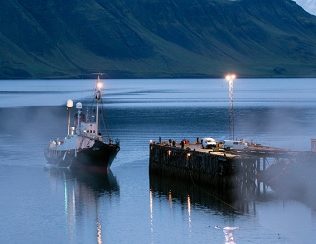
Kristjan Loftsson’s company is the last one in the world still hunting fin whales. His credo: “If it’s sustainable, you hunt.”
Mr. Loftsson, 75, is the world’s last commercial hunter of fin whales. He has been denounced by environmental groups and his boats have been sunk by radical activists, but his business is legal here because Iceland doesn’t recognize the international moratorium on commercial whaling. Mr. Loftsson likes to say that whale blood runs in his veins. For Mr. Loftsson and his supporters, whaling is no different than agriculture or fisheries. “If it’s sustainable, you hunt,” he said. >click to read<10:48






